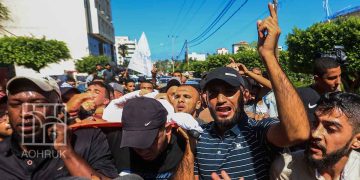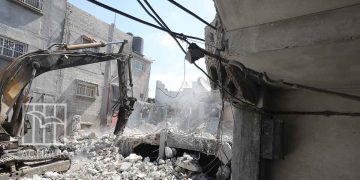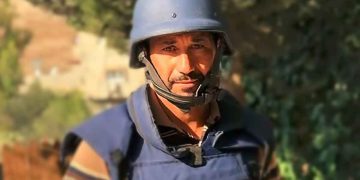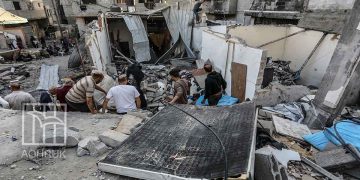Two Jordanian detainees, Khaled Al-Juhani and Abdel Rahman Abu Sharakh, are staging hunger strikes in separate facilities to protest their continued detention without charge or trial, amid allegations of arbitrary treatment and violations of their fundamental rights.
Al-Juhani has now spent 11 days refusing food in protest against what his family describes as deliberate bureaucratic obstruction and increasing restrictions on his rights. His demands include being allowed a face-to-face meeting with members of the Islamic Action Front, a political party whose parliamentarians he hoped would hear and raise his concerns, as well as permission to meet with his son, Abdel Rahman Al-Juhani, who is also in detention.
Family members report that for weeks, formal requests for contact between father and son have been ignored or passed between security agencies without resolution. Meanwhile, the detainees remain isolated from each other and deprived of basic communication, including regular phone calls, heightening the impact on their wellbeing and violating established rights to family contact for detainees.
In a separate case, Abdel Rahman Abu Sharakh, who has been in detention for over three months without facing formal charges or being brought before a judge, is now on his third day of hunger strike. His case has become emblematic of concerns about the use of prolonged administrative detention in Jordan, where individuals can be held for extended periods without meaningful judicial oversight.
International human rights standards require that all persons deprived of their liberty be promptly brought before a judge and that proceedings against them take place within a reasonable time. The absence of such safeguards in these cases has drawn concern from rights observers, who view hunger strikes as a last resort for detainees denied access to justice.
Hunger strikes represent a critical warning signal, reflecting the breakdown of legal avenues available to detainees. Under international law, authorities have an obligation to ensure the safety and dignity of those in custody and to address grievances raised through such extreme forms of protest.
The situation highlights broader concerns regarding the use of pretrial detention as a political instrument in Jordan. Arbitrary detention not only undermines fair trial rights but also erodes public trust in judicial processes and violates core protections under both Jordanian law and international conventions.
The cases of Al-Juhani and Abu Sharakh raise urgent questions about detention practices and due process guarantees in Jordan. The authorities face mounting calls to respect legal obligations, end arbitrary detention practices, and ensure that detainees’ fundamental rights including the right to prompt judicial review and family contact are upheld.


























